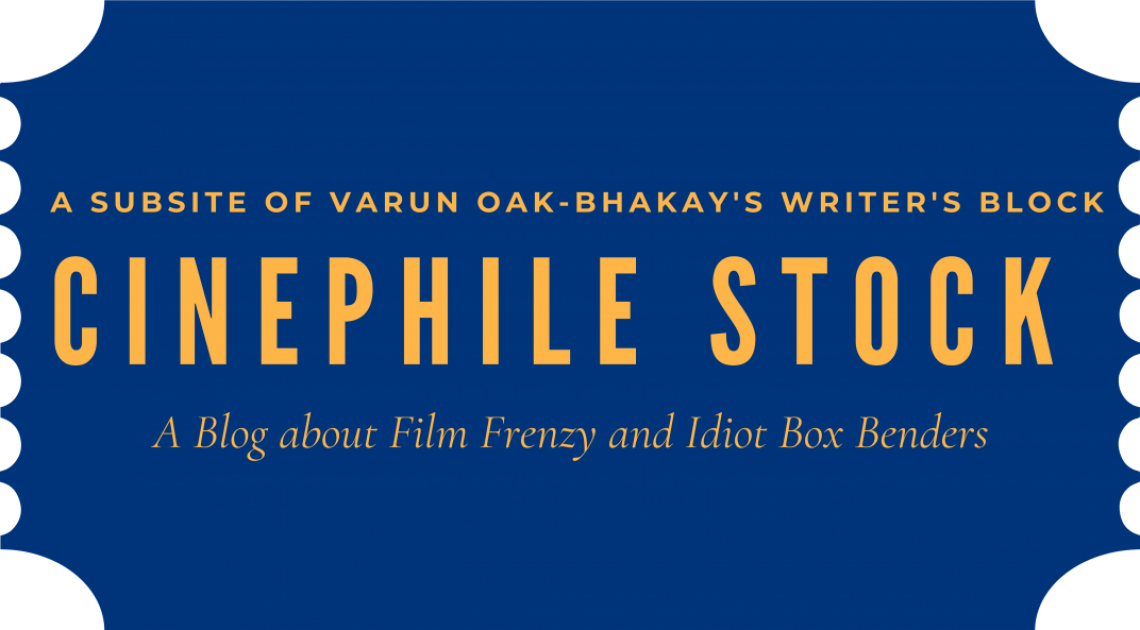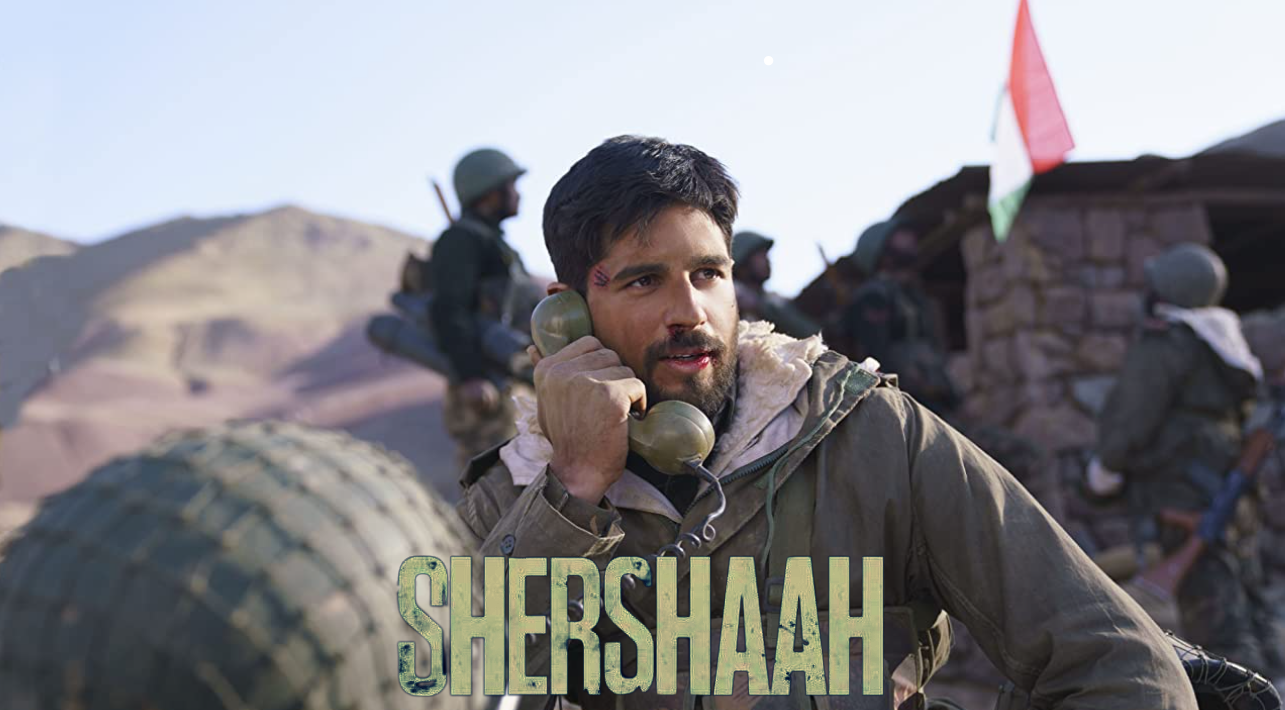Shershaah
 Few faces embed themselves in the public consciousness; fewer still are of those in uniform. Possibly the most recognised Army officer in the country after Field Marshal Sam Manekshaw, MC, Capt. Vikram Batra, PVC (Posthumous) of 13 Jammu & Kashmir Rifles shot to fame as the daredevil leader of an assault on a feature peaking at close to 17000 feet. In a televised interview, his face hidden behind a beard, a wide grin appeared as he recalled the gauntlet thrown down at him and his men by their counterparts. In an instant, Vikram became the face of the war. Here was a man, all of twenty-four years old, relatable to most, using a popular soft drink’s campaign tagline as his success signal, taking the fight to a back-stabbing enemy. The brass, which didn’t deserve credit anyway, was pushed to the side and this young officer from Palampur became the figure who would define the spirit of the Indian soldier in Kargil.
Few faces embed themselves in the public consciousness; fewer still are of those in uniform. Possibly the most recognised Army officer in the country after Field Marshal Sam Manekshaw, MC, Capt. Vikram Batra, PVC (Posthumous) of 13 Jammu & Kashmir Rifles shot to fame as the daredevil leader of an assault on a feature peaking at close to 17000 feet. In a televised interview, his face hidden behind a beard, a wide grin appeared as he recalled the gauntlet thrown down at him and his men by their counterparts. In an instant, Vikram became the face of the war. Here was a man, all of twenty-four years old, relatable to most, using a popular soft drink’s campaign tagline as his success signal, taking the fight to a back-stabbing enemy. The brass, which didn’t deserve credit anyway, was pushed to the side and this young officer from Palampur became the figure who would define the spirit of the Indian soldier in Kargil.
That Vikram was killed in action days later made him even more of a legend than his valour: he embodied thousands of men deployed that summer, those who made it out and those who didn’t. Reading about his heroics a decade later, nine-and-a-half-year-old me was wide-eyed with awe. It wasn’t as if his bravery was something that set him apart from countless others: bravery isn’t quantifiable – anyone who has it in them to run into the hellfire of battle is a “brave” – but something about Vikram, his charisma, perhaps, made him different.
Vishnuvaradhan [Billa, Arrambam] takes care to shed the vitriolic rubbish that has been peddled in the name of patriotism and give us a taste of what it is: love for one’s own country and a desire to live up to the sense of doing one’s duty to it. Vikram’s pep-talk to his men before setting off for Ledge on Pt 4875 is focussed on their mission: the enemy, to him, is incidental. It might just as well be the Chinese, but his final objective is reinstating the territorial sovereignty of India.
He also has a lightness of touch and a feel for the sombre: when Vikram tells a childhood buddy that he’ll either unfurl the flag or return wrapped in it, Vishnu dodges the bullet of making it seem prophetic or jingoistic; instead, it’s just a bit of banter over momos. Similar is the scene where 13 JAKRIF mourn Maj. Ajay Jasrotia, killed when their headquarters in Ghumri is shelled: they shed tears over the body of their fallen comrade, shaken by the suddenness with which he has left. It’s a scene that few directors would want to include but through it, Vishnu makes a pertinent point about war and the carnage it inflicts. These little moments, sprinkled through the runtime, are what Shershaah could have been had it not fallen prey to the trappings of biopics before it. They are evidence of a voice that could’ve done something different with the material at hand had he just stuck to his guns.

It’s more than a little baffling that, with their choice of subject, Vishnu and writer Sandeep Shrivastava (Ab Tak Chhappan, Shivaay) opt for the most done-to-death telling of a real-life story. Shershaah opens promisingly enough, with the climax, actually, only to cut to a TED-esque talk1 by Vishal, Vikram’s twin. At the moment the narrative device formed, I groaned inwardly – ‘Not this again. Please.’
Hell, if Shershaah were to use the device effectively, there wouldn’t be a problem, but apart from a couple of lines narrated here and there, a scene at the end and then a final glimpse, Vishal isn’t even in the film. Why introduce him to the viewer to begin with then?
Shershaah is at its most sure-footed when following Vikram through the Kargil operations. The rest of it feels tacked on: his romance with college sweetheart Dimple Cheema (an underwhelming Kiara Advani) is navigated through in as typical a form as can be – the leads have chemistry, but Vishnu makes the courtship feel vapid, lacking any depth, using songs to get through it rather than have the viewer invest in the couple, whose bond was such that Ms. Cheema remains unmarried and very much attached to the officer till date, twenty-two years since his death. Not once is their relationship given the heft it had in reality.
Even more baffling is Vishnu’s decision to reduce the Batra family to bit parts: Vikram’s older sisters are background functionaries, his parents have one scene of note, and his twin is missing entirely, an absence sidestepped with a casual explanation of him being away studying. Given the film revolves around Vishal’s reminiscence, his absence is curious, to say the least, and if one were to hazard a guess, is more a case of lack of conviction on Vishnu’s part as to how to orchestrate the twins appearing together. Right at the end, we get half-glimpses of Vishal upon his twin’s return home, but the emotion the shot arouses is too little, too late. Vikram’s friend Sunny is the only one apart from Ms. Cheema who gets a couple of scenes with the man himself, and it’s a testament to Sahil Vaid’s talent that he makes the role seem different from the other iterations of it he has played over the years.
The real trouble with Shershaah is its desire to play safe when its subject did the exact opposite: it paints Vikram in flawless, broad strokes, devoid of personality and individual thought, every bit the model human being, never in the wrong, not once. While this is reflective of a larger malaise on Bollywood’s part where biopics are concerned, it’s strange how even his errors are quickly covered up. As if the filmmakers had thought of humanising him for a second before changing course. Instead of the character being Capt. Vikram Batra, we get a plain Joe of a man named so who just happens to have a lot in common with the officer.

A large part of this inability to break the wall between character and human being is the limited skill of Sidharth Malhotra. By no means is he bad; in fact, this is the best he’s been since Kapoor and Sons, but Vishnu is unable to operate around the earnest actor’s lack of ability. Sidharth looks the part, there are times when he even feels it a little, but never is there a moment when one goes “Hey, that’s Capt. Vikram Batra!”. Vishnu chooses to scrape away the rough edges, and in that quest, loses the lovely Himachali twang in which Vikram spoke. The performance is too rehearsed, too calibrated. Rather than a crack at playing a person, it is an interpretation of an idea of that person without being much of him.
Vishnu’s voice gets drowned out in the clichéd choices he makes: Vikram’s bravery is illustrated through a vignette of his childhood, when he takes on a bully twice his age. How that is linked to his valour on the mountains of Ladakh, only Vishnu and Shrivastava know, but it’s a lazy example: courage, after all, doesn’t always have antecedents, nor does it need them. Flashing back to key moments at the end, a trope that was never useful, reeks of the same old Bollywood formula of spoon-feeding. Clichés work if you commit to telling the whole story in a certain fashion, but Vishnu is in two minds: to do things the way they’ve been done before and also to break new ground. Why the indecision, one asks? Be like the guy whose story you want to tell!
One place where Shershaah makes up for some of its missteps is the action: it’s brutal, messy, disjointed, chaotic and, most importantly, fairly credible. Vishnu navigates, with the assistance of cinematographer Kamaljeet Negi [Madras Café, Piku] and editor Sreekar Prasad [Alaipayuthey, Dil Chahta Hai], the complexities of mountain warfare rather well, taking time to punctuate the firefights. Sure, there isn’t the kinetic energy or inventiveness of Lakshya in the staging, and the sequences do make operations seem like a canter and units/sub-units rather undersized, but it does the job of conveying the geography convincingly.
Less convincing are the Kashmir portions of the film: that they were shot in Ladakh is painfully obvious [Kargil doubling for Sopore] but the clumsy depiction of the Army – from the lingo to the physical interpretation of life and relationships and their complex relationship with Kashmiris when the militancy hadn’t waned – is galling, more so for a film made with the kind of access that Shershaah had. Some of the supporting actors cast in the vital roles of Vikram’s colleagues look distinctly out of place; Raj Arjun, playing Sub. Raghunath Singh, and Shiv Panditt as Capt. Sanjeev Singh Jamwal have the distinction of being the ones who fall in place without much of an effort. The former is especially good as the seasoned JCO2, watching over Vikram like a concerned elder, and by his side for much of the action.
Shershaah is an immensely earnest film, and there are more than a handful of moments when it rises above the thin writing and convoluted structure, but Vishnu and Co. are unable to string together enough of those. The resultant film has neither the rigour of a thrilling war-actioner nor the depth of an intense character study of a very interesting man. It’s the film for you if you haven’t a clue who Capt. Vikram Batra is and want a primer on him, but it doesn’t quite do the job of bringing his life alive. The officer’s success signal captured my exact feelings upon finishing the film: Yeh Dil Maange More!

1 Vishal Batra gave a TED talk about his brother a couple of years ago.
2 JCOs, or Junior Commissioned Officers, are careermen with over a decade-and-a-half of life in uniform behind them, and function as the bridge between officers and troops in the Indian Army.


Lovely read 👌
LikeLiked by 1 person
Thank you so much.
LikeLike
Very well written Varun! Fantastic
LikeLiked by 1 person